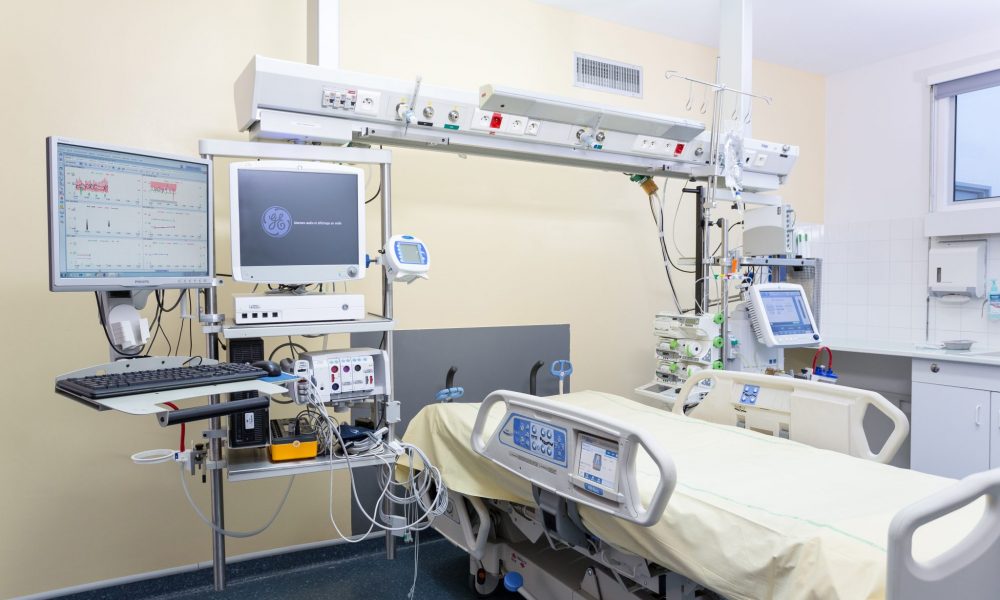- Post By - Intensive Care Unit (ICU)
- Post Date - 2024-09-10
Intensive Care Unit (ICU): Understanding Its Role, Services, and Importance
Intensive Care Unit (ICU): Understanding Its Role, Services, and Importance
Introduction
The Intensive Care Unit (ICU) is a specialized department within hospitals dedicated to providing intensive care and monitoring for patients with severe or life-threatening conditions. Unlike general wards or outpatient departments, the ICU is equipped with advanced technology and staffed by a team of highly trained medical professionals to ensure the highest level of care. This blog explores the functions, services, and critical importance of the ICU in modern healthcare.
What is an ICU?
The Intensive Care Unit (ICU) is a critical care unit designed to provide comprehensive and continuous care for patients who have serious health conditions or are recovering from major surgeries. The ICU is equipped with advanced medical equipment and technologies to monitor vital signs, support bodily functions, and manage complex medical conditions.
Key Services and Functions of the ICU
- Continuous Monitoring: Patients in the ICU are continuously monitored using advanced equipment that tracks vital signs such as heart rate, blood pressure, respiratory rate, and oxygen levels.
- Life-Support Systems: The ICU provides life-support systems such as mechanical ventilators for patients with severe respiratory issues, and intravenous pumps for administering medications and fluids.
- Specialized Medical Care: ICU staff includes intensivists, critical care nurses, respiratory therapists, and other specialists who provide around-the-clock medical care and intervention.
- Emergency Interventions: The ICU is equipped to handle emergency situations such as cardiac arrests, severe trauma, and complications arising from critical illnesses or surgeries.
- Multidisciplinary Care: Patients receive care from a team of healthcare professionals, including doctors, nurses, pharmacists, and therapists, who collaborate to provide comprehensive treatment.
When is ICU Care Required?
ICU care is required for patients who have conditions that are too severe to be managed in a general ward. Some common scenarios include:
- Severe Respiratory Distress: Patients with conditions such as acute respiratory distress syndrome (ARDS) or severe asthma may require mechanical ventilation and intensive monitoring.
- Cardiac Issues: Patients experiencing heart attacks, severe arrhythmias, or heart failure may need ICU care to stabilize their condition.
- Post-Surgical Recovery: Patients recovering from major surgeries, especially those involving the heart, lungs, or major organs, may require ICU care to monitor their recovery and manage complications.
- Trauma and Critical Illnesses: Patients who have experienced severe trauma, such as from accidents or major injuries, or those with critical illnesses like sepsis, may need intensive care.
- Neurological Emergencies: Patients with severe neurological conditions, such as strokes or head injuries, may require specialized care in the ICU.
Benefits of ICU Care
- 24/7 Monitoring: ICU patients benefit from continuous monitoring that allows for immediate detection and response to any changes in their condition.
- Advanced Technology: The use of cutting-edge medical technology in the ICU supports complex care needs and improves patient outcomes.
- Specialized Expertise: ICU staff are trained in critical care and can provide specialized medical interventions and treatments that are not available in general wards.
- Comprehensive Care: The multidisciplinary approach in the ICU ensures that all aspects of a patient’s condition are addressed, from medical treatment to rehabilitation.
Challenges in the ICU
- High Intensity: The high-intensity nature of ICU care can be demanding for both patients and healthcare providers. The constant monitoring and rapid response requirements place a significant burden on the medical staff.
- Emotional Impact: The ICU environment can be emotionally challenging for patients and their families, particularly when dealing with severe or life-threatening conditions.
- Resource Utilization: ICUs require substantial resources, including advanced medical equipment and highly trained personnel, which can strain hospital resources.
Conclusion
The Intensive Care Unit (ICU) plays a crucial role in providing advanced medical care for patients with severe or life-threatening conditions. By offering continuous monitoring, life-support systems, and specialized medical care, the ICU helps stabilize and treat patients who need the highest level of medical attention. Despite the challenges associated with ICU care, its benefits in improving patient outcomes and supporting complex medical needs make it an essential component of modern healthcare. For patients and their families, the ICU represents a place of hope and critical intervention in times of medical crisis.
 24/7 Medical Service
24/7 Medical Service
 24/7 Ambulance Service
24/7 Ambulance Service
 Emergency Service -
Emergency Service - 

